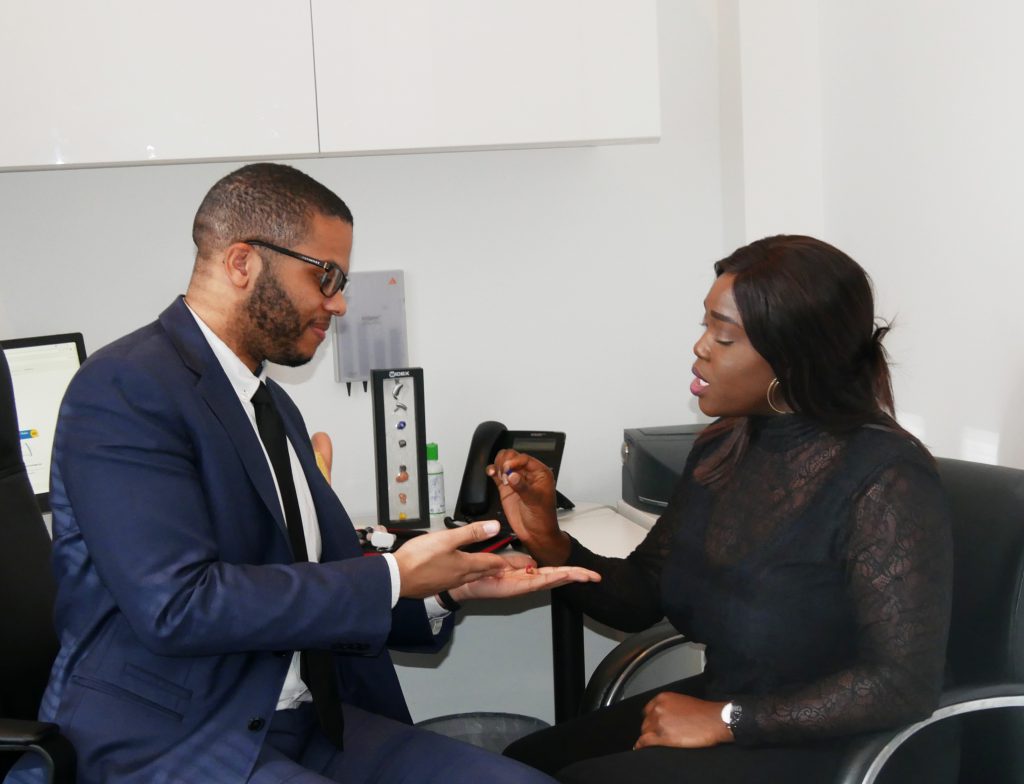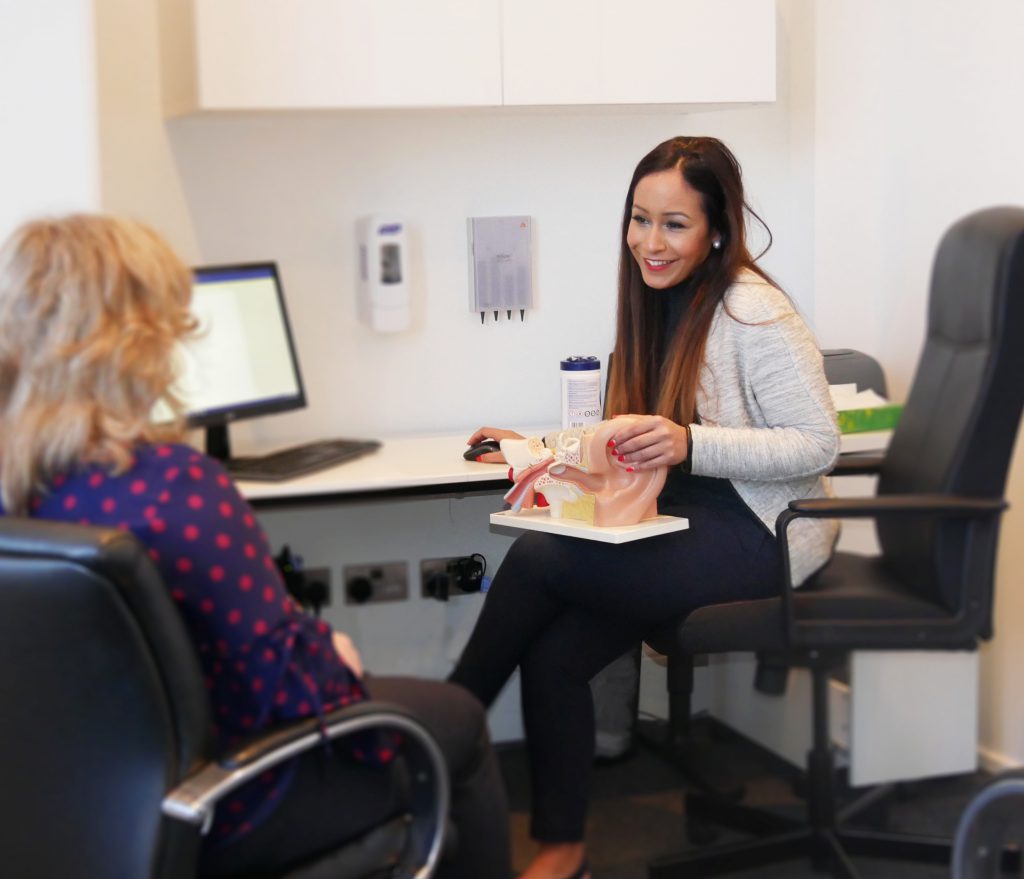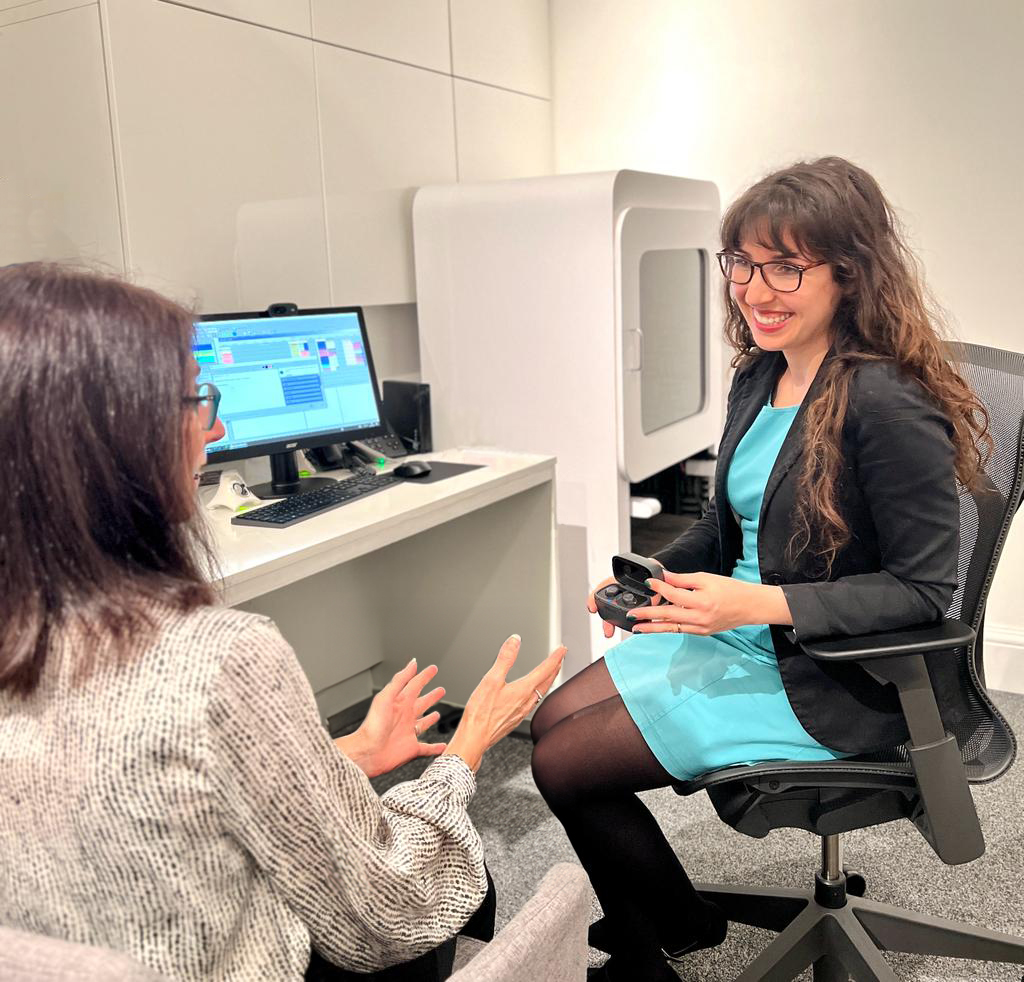The importance of a hearing test
It can be easy to take our hearing for granted and overlook our ear health, particularly if we’re not experiencing any concerning symptoms.
Hearing loss can happen so gradually that you might not notice until the symptoms have deteriorated significantly.
Anyone can develop hearing loss at any stage in their life, which is why it’s crucial to undergo regular and routine hearing tests. It’s a common misconception that hearing loss only affects the elderly, but that’s not the case.
Ignoring potential hearing loss can impact our physical health, emotional well-being, and overall quality of life. In this blog, we’ll discuss the key reasons why hearing tests are so important, and what they can help to detect.

Why is a hearing test important?
Many people know they should attend their routine eye tests or annual dental check-ups, and hearing tests shouldn’t be any different. Hearing tests help to keep our ear health in check, and can effectively detect any early signs of hearing loss or any abnormalities in our ears.
Our hearing health impacts us across all areas of our day-to-day life, including:
Safety and awareness
Hearing is our only sense that is constantly active. It allows us to recognise danger, even when we’re asleep. Our ears remain receptive to unusual or important sounds, whether it’s a fire alarm or a crying child, they allow us to react immediately from even the deepest sleep.
Similarly, when we’re awake we’ll usually hear any potential threat before we see it such as oncoming traffic whilst crossing the road. We need good, balanced hearing to be able to detect where sounds like this are coming from and how far away they are, which is just one of the many reasons why we need to take care of our hearing.
Communication
Communication forms the foundation of our social interactions, and the quality of our hearing has a huge part to play in that. Undiagnosed hearing loss can create communication barriers, making it difficult to keep up with conversations and hear what others are saying.
This can lead to misunderstandings, frustration, and social isolation. The more challenging social situations become, the more likely people are to avoid them altogether and start to become reluctant to participate in conversations and social events.
Through routine hearing tests, any hearing loss can be recognised promptly and if needed, hearing aids can be used to enhance communication and restore the ability to socialise without struggling.
Cognitive health and memory
Hearing loss and cognitive decline have long been associated with one another, and reports have shown that unmanaged hearing loss can increase the risk of developing dementia.
Regular hearing tests can help to detect any hearing loss early, and hearing aids can potentially slow down cognitive decline and promote healthy brain function.
Emotional well-being
It goes without saying that we rely on our ears to get us through everyday situations. The sense of hearing helps us to achieve many things that our other senses can’t, and as our hearing diminishes this can have huge consequences on our emotional well-being.
Hearing loss has a major impact on our professional and personal lives, and the effect of untreated hearing loss shouldn’t be underestimated. Once we’re unable to communicate the way we used to or do the things we love, this can lead to feelings of depression and anxiety.
A recent study reported that 65% of people in the UK have never had a routine hearing test. This is a worrying statistic to say the least, and highlights the need for spreading awareness about the importance of hearing health check-ups.

What can a hearing test detect?
Hearing tests are a lot more comprehensive than you may think. Conducted by a professional audiologist, they can detect various aspects of hearing health including:
1. Hearing loss
The primary purpose of a hearing test is to identify the presence and degree of hearing loss. It can determine whether the hearing loss is mild, moderate, severe or profound, and whether it affects one or both ears.
2. Type of hearing loss
There are three main types of hearing loss: conductive, sensorineural, and mixed. The type of hearing loss you are experiencing will dictate the most suitable treatment for you, and a hearing test can effectively identify which one you have.
3. Speech understanding
Some hearing assessments include speech discrimination testing where necessary, which evaluates your ability to understand speech at various volume levels and can determine how well you can comprehend language.
4. Frequency and pitch
If you’re found to have a hearing loss, a hearing test can identify the frequencies and pitches that you might have difficulty hearing in order to tailor your treatment options.
5. Tinnitus evaluation
Tinnitus is the perception of ringing, buzzing or other sounds in the ears, and a hearing test is the first step to understanding why the tinnitus might be present.
6. Middle ear function
Through an examination of the ear and auditory canal, a hearing test can assess the function of the middle ear and identify any abnormalities or issues such as fluid in the ear or problems with the eardrum.
7. Auditory Processing Disorder
Hearing tests can be used to assess the central auditory system’s function, which is responsible for processing sound signals from the ears to the brain. Auditory Processing Disorder can affect how the brain interprets sounds, even when the ears are functioning as they should.

Can a hearing test damage your hearing?
No, a properly conducted hearing test by a trained professional doesn’t pose any risk of damaging your hearing.
Whilst you may have concerns about having to listen to intense, loud or high-pitched sounds, these sounds are delivered at safe levels which are calibrated below the threshold that could potentially damage your hearing.
Of course, it’s essential to choose a reputable and qualified audiologist to conduct your hearing test to ensure best practices that prioritise your safety and well-being. Harley Street Hearing is London’s leading independent hearing clinic and our team of clinical audiologists are dedicated to providing an exceptionally high standard of service.
Our private hearing tests include a thorough hearing assessment and impartial, independent advice on the most suitable treatment for you. Contact us online or call us on 020 7486 1053 to find out more or book an appointment.
Enjoy this article? You might be interested in some of our others:












